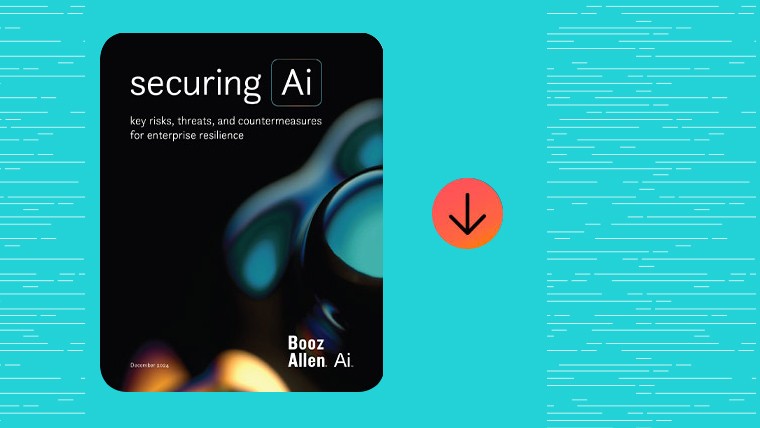As the No. 1 provider of AI services to the federal government, Booz Allen works closely with implementers, researchers, and leaders across the public and private sectors to build, deploy, and field machine learning (ML) algorithms that deliver mission advantage—and are resilient to adversarial attacks.
Damaging attacks against AI systems are no longer theoretical—they are being launched on commercial and government entities by adversaries, from individual bad actors to nation-states that seek to challenge U.S. interests and ideals. Using a range of techniques, including differential privacy, adversarial training, AI red teaming, operational monitoring, and others, we help government and commercial clients realize the benefits of AI systems while thwarting adversarial attacks.




